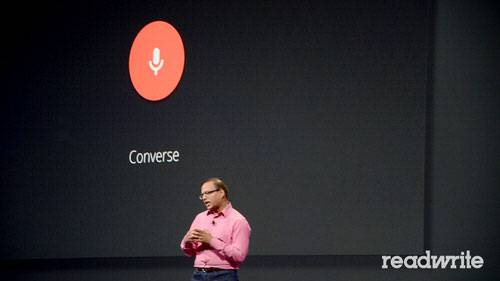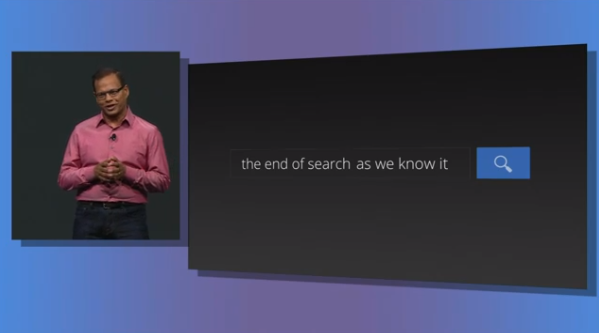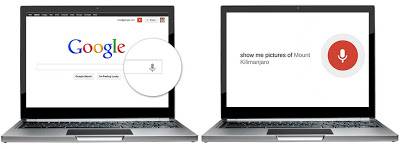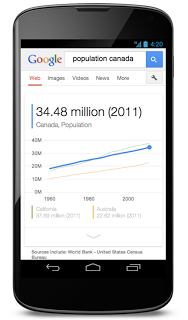
In all of the razzle-dazzle coming out of Google I/O Wednesday morning, it’s easy to forget about the company’s core product: Search. But Google didn’t forget about Search, showing off a number of interesting improvements, including a new hands-free feature that will bring voice-activated searches to desktop computers.
(See also Google Is Turning Search Into The Planet’s Biggest Anticipatory System.)

Google Loves Star Trek
The new voice commands for Google Search are the culmination of Google’s fixation on the Star Trek computer interface of the future. It’s something that Senior VP Amit Singhal very much wants to see – and Google Chrome browser users on desktops and laptops will get to share in the experience, simply by saying the phrase “OK Google” and then speaking the desired search term. No need to even press a button.

Voice search is already familiar to iOS users, in the form of Siri, and Google Search for Android users. The roll out on Android no doubt served as a great testbed to get Google’s voice-recognition algorithms better adapted to human speech patterns.
According to a blog post by by Google senior VP Amit Singhal, the idea is to turn search into a natural language conversation:
Soon, you’ll be able to just say, hands-free, “OK Google, will it be sunny in Santa Cruz this weekend?” and get a spoken answer. Then, you’ll be able to continue the conversation and just follow up with “how far is it from here?” if you care about the drive or “how about Monterey?” if you want to check weather somewhere else, and get Google to tell you the answer.

Reminder Cards & Knowledge Graphs
Voice was not the only addition to Google Search’s feature set: the company also announced new reminder cards in its Google Now tool. Currently, Now’s cards are based on a set type of search, such as sports team cards based on your frequent searches. Now users will be able to add reminders set to pop up as cards in Google Now whenever your location in time and space (your context) is close to the reminder. Like a note to buy milk when you go by the grocery store.
Google’s search will also start to deliver information in a far more anticipatory way, using Google’s Knowledge Graph to build and manage connections between searches and deliver information based not only on the user’s immediate search, but potential searches that many people ask as a follow-up.
(See also Forget Searching For Content – Content Is About To Start Searching For You.)
All of these features move Google towards a more friction-free form of contextual search – and that promises to bring knowledge to users faster and more seamlessly.
Lead image by Nick Statt for ReadWrite.

















